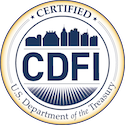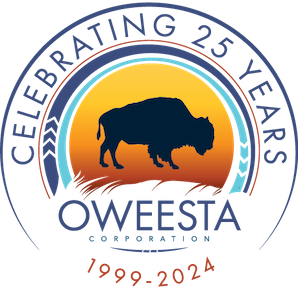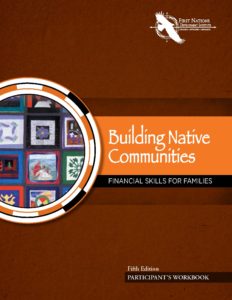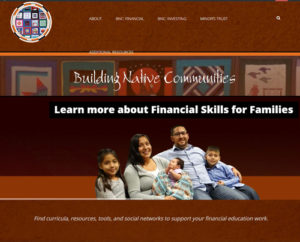Latest News
All the news that are relevant for our small community
All the news that are relevant for our small community
Oweesta Corporation
2432 Main Street, 1st Floor
Longmont, CO 80501
303.774.8838
info@oweesta.org

Oweesta is an equal opportunity employer and provider. We do not discriminate, learn more here: Title VI, Section 504.
Oweesta is the longest standing Native CDFI intermediary offering financial products and development services exclusively to Native CDFIs and Native communities. Specifically, Oweesta provides training, technical assistance, investments, research, and policy advocacy to help Native communities develop an integrated range of asset-building products and services, including financial education and financial products.
Asset-building tools stimulate reservation economies by providing tribal members the opportunity to acquire financial management skills and build and accumulate assets through small business creation, homeownership, education, and much more.
Filing Civil Rights Complaints
If you believe you have been subjected to discrimination on the basis of race, color, national origin, sex, age, disability, religion, or reprisal for prior civil rights activity, you have the right to file a complaint. Complaints may be filed directly with the Director, Office of Civil Rights and Equal Employment Opportunity, at the following address:
Director, Office of Civil Rights and Equal Employment Opportunity
Department of the Treasury
1500 Pennsylvania Ave, N.W.
Washington, DC 20220
Alternatively, complaints may be submitted via email to crcomplaints@treasury.gov.
Join our Newsletter

First Nations and Oweesta Revise Building Native Communities Curriculum and Unveil New Web Resource for Native Financial Educators
LONGMONT, Colorado (April 29, 2016) – In honor of April being National Financial Literacy Month, First Nations Development Institute (First Nations) and First Nations Oweesta Corporation (Oweesta) have jointly released the 5th edition of the Building Native Communities: Financial Skills for Families curriculum. The revised curriculum includes an updated Participant Workbook and Instructor Guide, as well as a new website at www.BNCweb.org, a comprehensive online portal for Native financial educators and practitioners.
new website at www.BNCweb.org, a comprehensive online portal for Native financial educators and practitioners.
First Nations partnered with Oweesta to convene an advisory committee to revise the Building Native Communities Participant Workbook. Funded by the Rose Foundation and the AMB Foundation, the workbook has new content that incorporates feedback from the advisory group and addresses changing technology. There are new sections that cover topics like online banking, consumer savvy (recognizing persuasion tactics), and constructing a record-keeping system. The revision team also removed outdated material and greatly enhanced the math content of the workbook. New “Money Math” activities throughout the workbook help students apply what they have learned. In addition, the revised workbook includes new illustrations, photos, infographics and charts. The resulting workbook has a more modern and visual feel.
Oweesta and First Nations also updated the Instructor Guide that accompanies the Building Native Communities curriculum. New chapters address training techniques, learning styles for various demographics, financial education program design, and best practices for financial education classes.
Building Native Communities: Financial Skills for Families is a culturally-appropriate guide to financial education in Native American communities that helps individuals make informed financial decisions for themselves, their families and their communities. Since the release of the first edition of the curriculum in 2000,Building Native Communities: Financial Skills for Families has become the leading financial education curriculum in Indian Country. To date, First Nations and Oweesta have distributed more than 18,000 copies of the Financial Skills for Families workbook, and over 1,400 leaders from 28 states have become certified trainers through nearly 60 Oweesta/First Nations Train-the-Trainer events.
Additionally, First Nations and Oweesta launched the new financial education web portal BNCweb.org. BNCweb.org serves as a resource center for Native fina ncial education practitioners and educators. The site contains our suite of financial education curricula, downloadable instructor guides, trainer tools, research and publications, and additional materials. The website also contains links to the My Green campaign, the investnativeonline.org website, and videos and materials that can assist financial educators. All resources will be in a centralized location and will address topics such as Minor’s Trust Accounts (training resources, research, etc.), investing, and working with youth. These efforts were funded by the Rose Foundation and Paul G. Allen Family Foundation.
ncial education practitioners and educators. The site contains our suite of financial education curricula, downloadable instructor guides, trainer tools, research and publications, and additional materials. The website also contains links to the My Green campaign, the investnativeonline.org website, and videos and materials that can assist financial educators. All resources will be in a centralized location and will address topics such as Minor’s Trust Accounts (training resources, research, etc.), investing, and working with youth. These efforts were funded by the Rose Foundation and Paul G. Allen Family Foundation.
“The revised fifth edition of the Building Native Communities: Financial Skills for Families workbook is a great resource,” shared Sarah Dewees, Senior Director of Research, Policy and Asset-Building Programs at First Nations. “The input from the advisory committee ensured that the new curriculum is timely, relevant and easy to use.” Krystal Langholz, Chief Operating Officer of First Nations Oweesta Corporation, stated, “We look forward to rolling out this new edition with revised train-the-trainer workshops and several webinars to introduce people to the new information.” Chrystel Cornelius, Executive Director of Oweesta, shared, “The new www.BNCweb.org portal is a great resource for Native financial educators. We have designed it to provide a range of tools to support effective financial education.”
The BNCweb.org website is live and can be accessed by visiting www.BNCweb.org. To download a free PDF copy of the new Building Native Communities: Financial Skills for Families participant workbook, visit the curriculum page on www.BNCweb.org, or the trainer’s tools page for the Instructor Guide. To pre-order copies of the workbook, contact Chris Hansen at chris@oweesta.org or (303) 774-8838.
About First Nations Development Institute
For more than 35 years, using a three-pronged strategy of educating grassroots practitioners, advocating for systemic change, and capitalizing Indian communities, First Nations has been working to restore Native American control and culturally-compatible stewardship of the assets they own – be they land, human potential, cultural heritage or natural resources – and to establish new assets for ensuring the long-term vitality of Native American communities. First Nations serves Native American communities throughout the United States. For more information, visit www.firstnations.org.
About First Nations Oweesta Corporation
First Nations Oweesta Corporation was created 15 years ago to address the lack of capital and financial infrastructure holding back economic development in Native communities recognized by its parent organization, First Nations Development Institute. First Nations Oweesta Corporation’s mission is to provide opportunities for Native people to develop financial assets and create wealth by assisting in the establishment of strong, permanent institutions and programs that contribute to economic independence and strengthened sover eignty for all Native communities. For more information, visit www.oweesta.org.
–##–
Program Contacts:
Sarah Dewees, First Nations Senior Director of Research, Policy & Asset-Building Programs
sdewees@firstnations.org or (540) 371-5615
Media Contacts:
Randy Blauvelt, First Nations Senior Communications Officer
rblauvelt@firstnations.org or (303) 774-7836 x213
Bank of America’s Better Money Habits
Minneapolis Fed launches Center for Indian Country Development